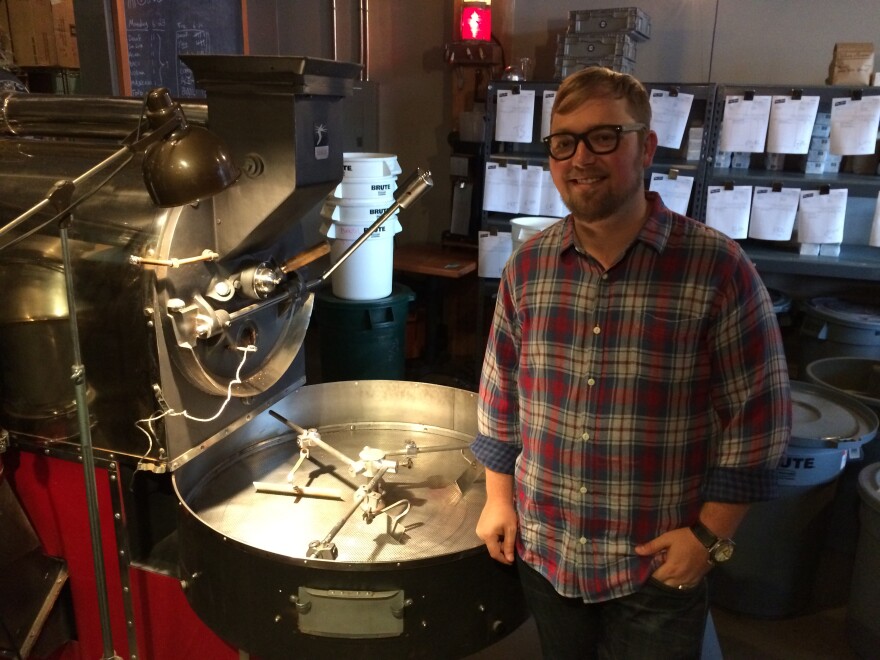Farmers across the country are riled up over the U.S. Environmental Protection Agency’s plan to revise the 1972 Clean Water Act.
Depending on who you talk to, these revisions are either a “land grab” under the “brute force” of the federal government or a simple clarification of rules that ensure all Americans have clean water to drink.
“The Clean Water Act is the basic law that protects water bodies across the United States from pollution,” said Nancy Stoner, EPA’s top water administrator.
But two Supreme Court rulings in the past decade have made murky what’s actually protected under the 40-year-old law, Stoner said, and as a result, clarification is needed.
New Rules To Apply To Ditches, Puddles?
The proposed rule changes won’t add any new types of water to the list of protected bodies of water, Stoner said; the EPA simply wants to spell out that the law covers all rivers and streams, including those that run dry during the summer.
That argument isn’t swaying the critics, however. The American Farm Bureau has launched a campaign with a rallying cry of “ditch the rule.” The bureau believes the new rules could apply to ditches and even puddles.
"That's kind of scary when you're a farmer," said Angela Bailey, who grows decorative trees and shrubs on land that has been in her family for nearly a century.
Bailey’s small plot of land is located in rolling hills about 20 miles east of downtown Portland. On her farm is a low point that she turns into a big puddle during rainy winters.
"But [it’s] nothing really more than a puddle by my estimation," Bailey said, "at its worst, maybe water that comes up to my ankle."
Bailey said there are more than a dozen low places around her farm where water collects in this manner after heavy rains, but it typically evaporates or seeps into the ground. But she added that she isn't sure whether these normally dry spots would be subject to regulation under the new rules. If they are, that could require costly and drawn-out environmental assessments and permits for any farm work done near these transient patches of water.
"I do feel like there's a lot of uncertainty associated with the proposed rule," Bailey said.
EPA: Proposal ‘Didn't Change The Definition Of Wetland’
States do have their own regulations that can complement or sometimes exceed federal rules when it comes to clean water.
In Oregon, the Department of Environmental Quality regulates waterways. Jane Hickman of the department's Water Quality Division said it's possible the expanded federal definition of waterways will have minimal impact in Oregon since the state's definition of a regulated waterway is already broader than the proposed federal version.
But according to Stoner, the EPA “didn't change the definition of wetland.” She reiterated that the revisions are only clarifying the rules to include the smallest streams, connected wetlands and rivers that can dry up during the summer months.
"Some of those are streams that flow seasonally or after rainfall events," she said. "Those are very important to protect."
Stoner said a kind of the deciding point is that water must have a connection to the downstream flow. That would seem to rule out the now-you-see-them, now-you-don't puddles on Bailey's farm.
‘A Huge Grab Of Jurisdictional Power’ Or Reducing Pollution Potential?
But despite repeated reassurances from the EPA, agricultural advocates believe the government has something more up its sleeve. U.S. Rep. Kurt Schrader, D-Ore., blasted the agency during a recent hearing on Capitol Hill.
"This is ludicrous," he said. "I mean, I don't think anyone with a straight face can say that this is anything but a huge grab of jurisdictional power at the end of the day."
Schrader, a Democrat in an agricultural swing district, has joined a largely Republican opposition to the new rules. These critics believe the rule changes add up to government intrusion into farming practices and control of what people can do with their own land. The opposition campaign has drummed up so much of an outcry that the EPA extended a public comment period through October instead of ending it this month.

But supporters of the pending regulations are also raising their voice, including Matt Milletto, owner of a bustling coffee shop a stone's throw from the Willamette River in Portland, which puts him literally downstream from Bailey's property.
Milletto said it's important for his business to reduce even the potential for pollution in the upstream water supply.
"Coffee, when it's brewed, is made up of 98 percent water," he said. "We're greatly affected, being a beverage-focused company, with not only actual clean water but with the public's assurance that water's clean and what they're drinking's clean."
The debate over the best way to make that happen may extend well beyond October when the public comment period ends. Opponents in Congress have vowed to overturn the new rules on the House and Senate floors, though it’s not yet clear whether they have the votes to do so.







